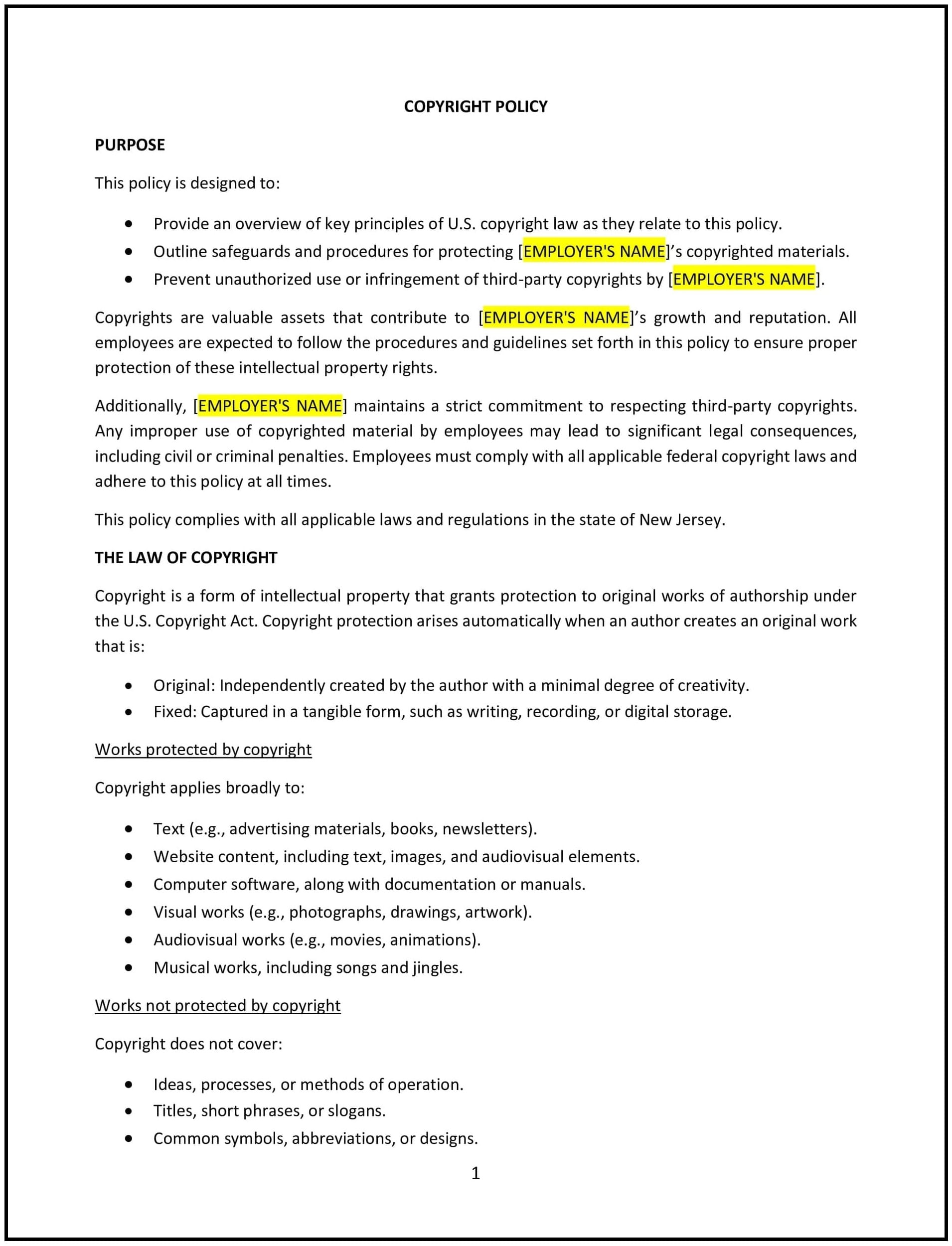Got contracts to review? While you're here for policies, let Cobrief make contract review effortless—start your free review now.

Customize this template for free
Copyright (New Jersey)
A copyright policy helps New Jersey businesses protect intellectual property, manage the use of copyrighted materials, and prevent unauthorized reproduction or distribution. This policy outlines employee responsibilities regarding original content, licensing requirements, and the proper use of copyrighted works. It also sets expectations for handling copyright infringement claims and securing permissions for external content.
By adopting this policy, businesses in New Jersey can safeguard their creative assets, reduce legal risks, and promote ethical content usage.
How to use this copyright policy (New Jersey)
- Define copyright-protected materials: Specify that original works such as written content, designs, logos, software, photographs, and marketing materials are subject to copyright protection.
- Establish ownership rights: Clarify whether content created by employees during work hours or using company resources belongs to the business or the individual creator.
- Set guidelines for using copyrighted materials: Require employees to obtain proper authorization before using third-party copyrighted content, such as images, music, or articles.
- Outline licensing and fair use considerations: Provide instructions for determining when copyrighted materials can be used under licensing agreements or fair use exceptions.
- Address copyright infringement claims: Explain how the business will respond to alleged copyright violations, including investigation procedures and corrective actions.
- Require attribution when necessary: Encourage proper citation or crediting of external sources when using third-party content within permitted guidelines.
- Implement content protection measures: Outline strategies for securing company-owned copyrighted materials, including watermarking, digital rights management, or access restrictions.
- Review and update: Regularly assess the policy to reflect changes in copyright laws, business needs, and industry best practices.
Benefits of using this copyright policy (New Jersey)
This policy provides several benefits for New Jersey businesses:
- Protects intellectual property: Helps businesses maintain control over original works and creative assets.
- Reduces legal risks: Provides clear guidelines to prevent copyright infringement and unauthorized use of protected materials.
- Supports ethical content use: Promotes responsible handling of copyrighted works, including proper licensing and attribution.
- Strengthens brand integrity: Establishes clear ownership of business-created materials, preventing unauthorized distribution.
- Enhances compliance with copyright laws: Encourages employees to follow best practices when using third-party content.
Tips for using this copyright policy (New Jersey)
- Communicate the policy clearly: Ensure employees understand copyright ownership, usage rules, and licensing requirements.
- Provide copyright training: Educate employees on identifying copyrighted materials and obtaining permissions when necessary.
- Monitor content usage: Implement tracking mechanisms to ensure proper use of company-owned and third-party copyrighted materials.
- Establish a copyright response process: Designate a team to handle copyright concerns, including infringement claims and licensing requests.
- Review the policy regularly: Update the policy to reflect changes in copyright regulations, industry trends, and business content strategies.